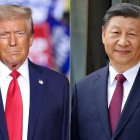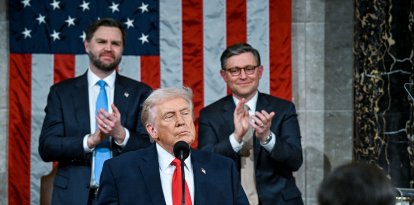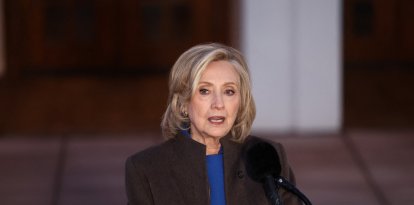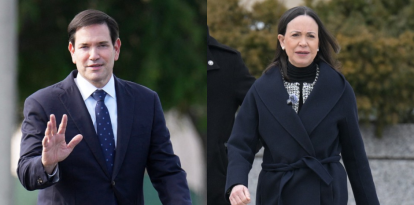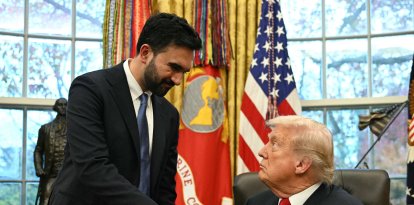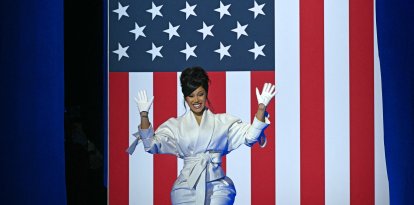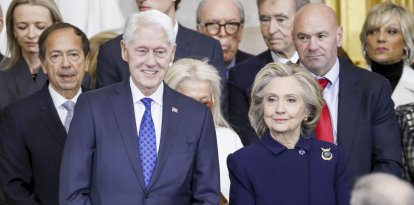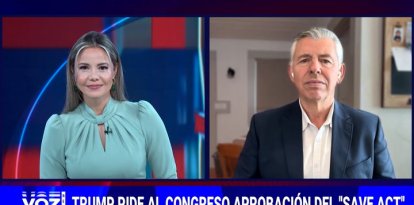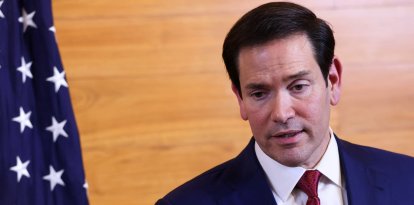Trump on his tariffs: "Only the weak will fail"
China's announcement to impose an additional 34% tariff on all U.S. goods marked the beginning of a series of chain reactions.

Donald Trump
US President Donald Trump has stepped up his rhetoric amid escalating global trade tensions following the implementation of his tariff measures on so-called "Liberation Day."
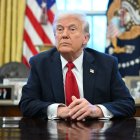
Politics
Trump predicts stock market boom after market plunge from reciprocal tariffs
Agustina Blanco
In a recent message posted on his Truth Social account, Trump stated, "Only the weak will fail," projecting an image of determination in the face of international criticism and retaliation that has emerged in response to his protectionist policy.
The announcement by China to impose an additional 34% tariff on all U.S. products marked the beginning of a series of chain reactions following Trump's tariff measures.
Far from backing down, the Republican leader responded to the Asian giant with a new message on Truth Social: "CHINA PLAYED IT WRONG; THEY PANICKED - THE ONE THING THEY CANNOT AFFORD TO DO!
For his part, Federal Reserve Chairman Jerome Powell offered a more cautious assessment during a speech in Arlington, Virginia. Powell acknowledged that the tariffs imposed by Trump, which exceed initial expectations, will have a significant impact in the near term:
“Will likely lead to higher inflation and slower growth.” However, he also highlighted the resilience of the U.S. economy, noting that "While uncertainty is high and downside risks have risen, the economy is still in a good place.”
In this context, Powell referred to the Bureau of Labor Statistics (BLS) report released earlier in the day, which reported the creation of 228,000 jobs in March, suggesting that the labor market continues to show strength despite the turbulence.
Powell struck a cautious tone about the future, stressing that it is still early to determine the final course of monetary policy. “Fast forward a year from now, the uncertainty should be much lower. The actual effects of the policies should be pretty manifest and clear. It’s a good time to take a step back and let things clarify," he said.
He also defended the Fed's current stance. "We are closely watching this tension between the hard and soft data," said Powell. "As the new policies and their likely economic effects become clearer, we will have a better sense of their implications for the economy and for monetary policy."
The tariff war unleashed by Trump has created a climate of uncertainty in the markets. The measures, which include "reciprocal" tariffs and specific rates such as the 34% announced by China, have been justified by the president as a way to protect the US economy and correct trade imbalances.
However, the immediate consequences - rising prices of imported goods and fears of an economic slowdown - have cast doubt on the long-term viability of this strategy.

Economy
Wall Street suffers its worst day since March 2020 in the wake of Trump's tariffs, with losses of $3.1 billion and investors panicked
Emmanuel Alejandro Rondón





